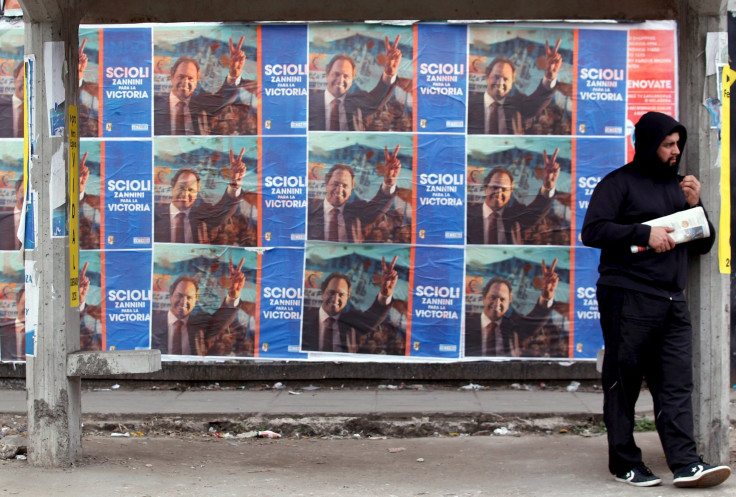Argentines Choose Post-Fernandez Path In Presidential Primary

BUENOS AIRES (Reuters) - Argentina holds an open primary election on Sunday that will gauge the country's appetite for change after eight years of heavy state control of the economy and generous welfare spending under outgoing President Cristina Fernandez.
The front-runner ahead of the Oct. 25 general election is Daniel Scioli, governor of Buenos Aires province and a member of Fernandez's party. Running second is Mauricio Macri, the business-friendly mayor of the capital city who wants to do well enough in the October vote to force a November run-off.
Both are former businessmen with more orthodox policies than Fernandez, whose high public spending has drained fiscal accounts and fueled inflation while currency and trade controls slowed investment.
Macri promises to quickly free the markets. Scioli says "gradualism" is the best way to open the economy while preserving the strong social safety net weaved together by Fernandez since she first took power in 2007.
The primary is set up for each party to choose its presidential candidate, but with voters free to cross party lines, Sunday's vote will be a dry run ahead of the October election.
Argentine stock and bond prices will likely fall if Scioli comes out of Sunday's primary strong enough to win the presidency in October's first round. If Macri looks strong enough to force a run-off in November, markets are set to rise.
To win outright in October, a candidate needs 45 percent of votes cast or 40 percent with a 10-point spread over the second place candidate.
Scioli needs close to 40 percent of the primary vote to have a chance of a first-round win. Ignacio Labaqui, who analyses Argentina for Medley Global Advisors, said Macri's coalition needs at least 30 percent on Sunday to stay in serious contention.
Macri vows to scrap currency controls and export curbs, and to negotiate an end to the U.S. court battle with holders of non-paying sovereign bonds that has hobbled Argentina's finances by keeping it in default.
Scioli has revealed few details of his program, as he treads gingerly to lock in Fernandez's left-leaning base without alienating the wider electorate.
Fernandez's policies have fueled one of the world's highest inflation rates, but poor voters who have benefited from state largesse over the last eight years remain loyal to her. While barred from running for a third consecutive term in October, Fernandez could return as a presidential candidate in 2019.
© Copyright Thomson Reuters 2024. All rights reserved.











